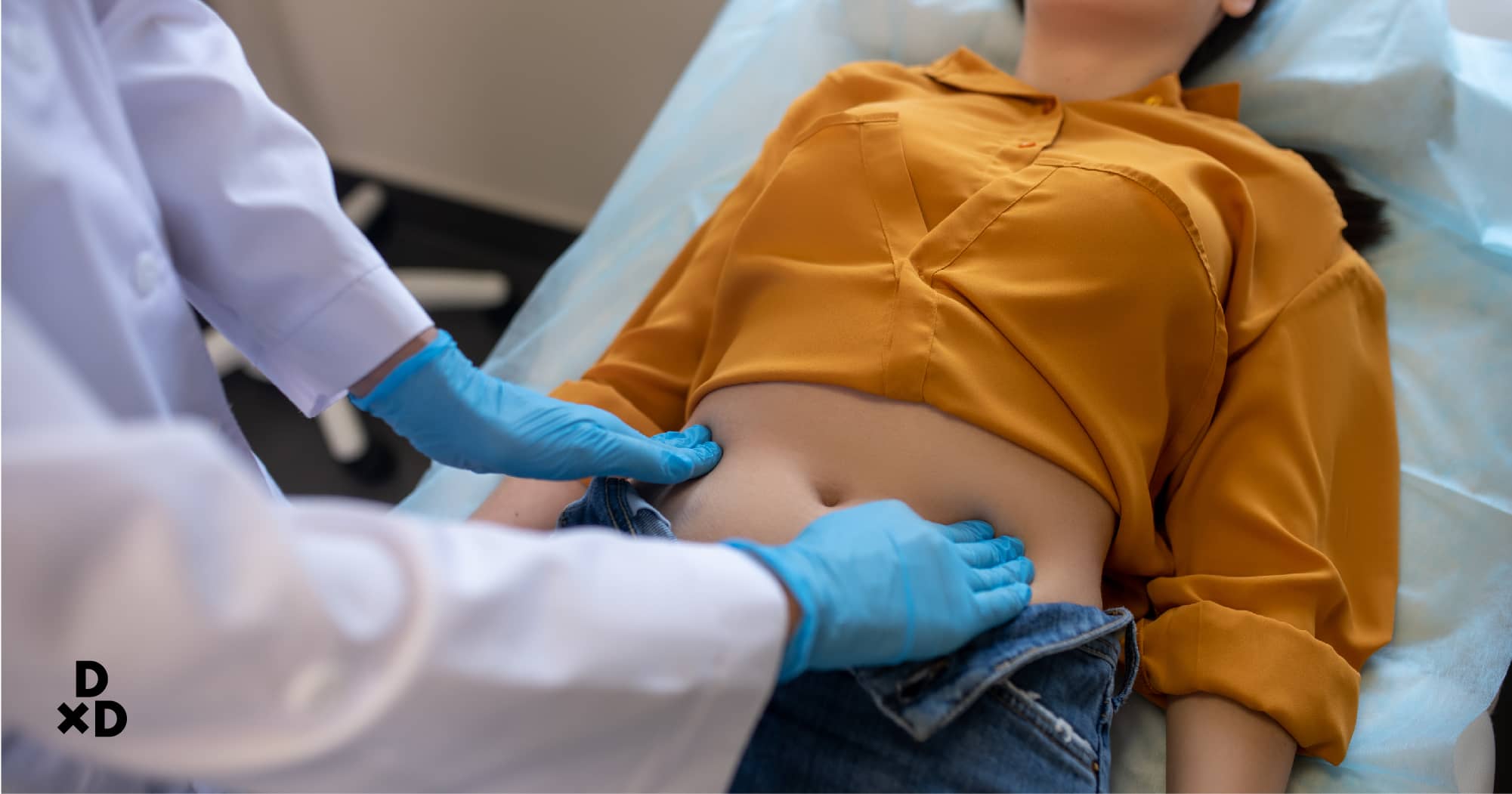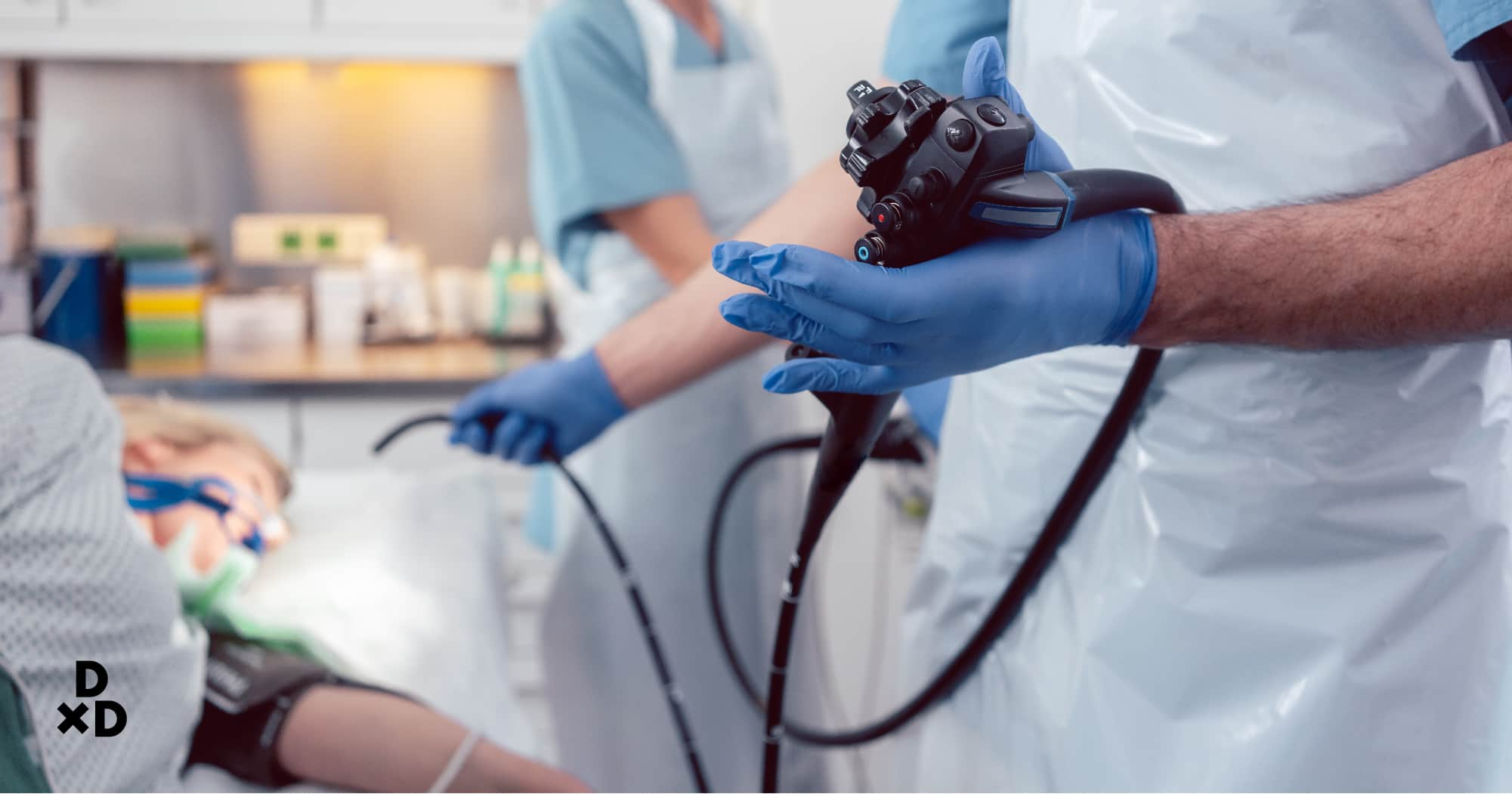Introduction
Acid reflux is a condition that can make you feel uncomfortable and, at times, even painful. However, it usually goes away on its own and is hardly ever a cause for worry — it happens! That being said, if it happens all the time, then maybe your body is trying to tell you something. When should you go to a doctor for acid reflux, what does it mean when it happens often, and what can be done to treat it?
Acid reflux is a condition that occurs when stomach acid flows back up into the oesophagus, causing symptoms of discomfort and pain. Persistent occurrence of acid reflux could be a sign of gastroesophageal reflux disease (GERD).
Let Dr. Shanker walk you through all the information you need to know about acid reflux treatment such as the causes, symptoms, possible complications, and available treatments, amongst many other topics.
What causes Acid Reflux?
Acid reflux can be caused by a variety of reasons which can be split into 3 main categories such as:
Certain food and drinks
Overeating and certain foods - such as spicy and fatty foods - can trigger acid reflux. For some, having tea or coffee may cause spasms in their stomachs which can lead to acid reflux. Beyond that, some people may have other foods that cause them to experience the condition.
Acid reflux may be associated with a Western-type lifestyle and diet. The cereals and other wheat-based foods in Westerners’ diets are more likely to cause acid reflux, as they are relatively harder to digest. On the other hand, traditional staple foods in Asia such as rice are less likely to predispose you to acid reflux.
Certain practices and behaviours
There are several practices and behavioural issues that may cause acid reflux, such as:
- Consuming certain medications that may increase acidity in the stomach.
- Smoking is a risk factor for acid reflux as it increases acid production. The nicotine in cigarettes can affect gut function.
- Lack of sleep can lead to problems in digestion and hence, possibly acid reflux.
- Stress is also a possible contributor. It may lead to acid reflux and Irritable Bowel Syndrome (IBS).

Structural problems in the digestive tract
Hiatal Hernia
The stomach is located under the diaphragm. When it becomes very full, the filled stomach pushes upwards into the chest cavity, forming a hiatal hernia — where a part of the stomach protrudes through a gap in the diaphragm.
Another reason for this is that the chest cavity has more space for the stomach to move into, whereas the bowel cavity is denser as it contains more organs. That is why people feel discomfort in the middle or left side of their abdomen or chest. It can even affect the back or shoulder because of pressure resulting from the stomach pushing upwards.
Loosening of the lower esophageal sphincter (LES)
Normally, when food fills the stomach, it is prevented from moving up into the esophagus by a muscular ring called the lower esophageal sphincter (LES). However with age, over-eating, vomiting, etc. the LES can become stretched out and loosen. This allows stomach contents to then gush upwards into the esophagus (think of a fizzy drink bottle with gas and liquid shooting up after you remove the bottle-cap).
Generally, if acid reflux is something you experience occasionally, it is usually a milder condition triggered by something you have eaten and should subside. However, if you tend to experience acid reflux frequently, then it may indicate something wrong with your stomach.
What are the symptoms of Acid Reflux?
The symptoms of acid reflux can be very discomforting and distressing to experience. People experience acid reflux differently and in varying degrees, but the common symptoms are:
- Burning sensation in upper abdomen, chest, or throat (heartburn)
- Pain in the same areas
- Bloating
- Belching or burping
- Coughing
- Worsened asthma
- Choking
- Saliva pooling
- Difficulty breathing at night (less common)
- Difficulty swallowing
These acid reflux symptoms may worsen when laying down and especially so after eating. Due to the nature of these symptoms, some of them are often mistaken for heart or respiratory problems as they mimic chest pain or tightness, shortness of breath, and coughing, amongst others.
If you are ever unsure, you should consult your doctor for a proper diagnosis.
What complications could arise with untreated Acid Reflux?
Acid reflux conditions involve the rising of acid from the stomach into the oesophagus. You could develop gastritis or esophagitis, which are inflammatory conditions affecting the stomach or oesophagus respectively. The acid may have a burning effect on the inner walls of the parts of the digestive tract.
While inflammation is a relatively mild complication, it can progress and develop an ulcer near the junction of the stomach and oesophagus. These ulcers are extremely painful and may even bleed. The duodenum may also be affected.
During my residency, I used to get a lot of patients who came in with bleeding or ruptured ulcers in the stomach. Nowadays, gastric medication is readily available and hence these complications do not happen as much. Fewer people smoking has also contributed to the decrease in such complications.
When should you go to a doctor for Acid Reflux?
As mentioned earlier, acid reflux is a normal occurrence that happens now and then because of the type of food we eat. However, if the symptoms start to trouble you, and if you experience acid reflux on frequent occasions, it may be good to consult a doctor for a proper diagnosis.
This is especially so if the symptoms do not subside despite reducing food intake. Seeing a doctor will help you identify the risk factors and any underlying factors that could be causing the acid reflux.
Who would most likely suffer from Acid Reflux?
In general, acid reflux conditions affect less than 10% of the Asian community [1] [2]. However, there are three groups of people who may be more likely to experience acid reflux.
Most pregnant women will experience acid reflux. It is usually due to the growing baby in the womb physically pushing up into the stomach. It may also be due to pregnancy-related hormonal fluctuations [3].
People who suffer from obesity are more likely to experience acid reflux symptoms [4]. With obesity rates on the rise not just in Singapore but all across the region, excessive weight gain is one of the reasons why acid reflux is increasing in prevalence now.
If you tend to overeat or consume drinks and other fluids such as soups during a meal, overdistention of the stomach can occur. Normally the stomach has a capacity of about 1 litre. A 3-course meal with a drink on the side (worse if it is fizzy!) can easily exceed this volume.
Worse, some people have a habit of drinking juice or bubble tea after meals. If this is done frequently, it may lead to stretching of the LES or a hiatal hernia, both of which are occurring more commonly in recent times.

How is Acid Reflux diagnosed?
On top of the usual discussion between the doctor and patient about the symptoms experienced, there may be some additional tests in acid reflux diagnosis.
It is important for us to identify any signs of anxiety, the patient's mood, and psychological state as they could also be the root causes of acid reflux events. Other diagnostic tests include:
Endoscopy
An endoscope is inserted down your throat to observe the junction and lining of the stomach, and the duodenum to detect any abnormalities such as ulcers, inflammation, or precancerous symptoms. Biopsy samples can also be extracted for further examination. The procedure is done while the patient is put under and can be done within 10 minutes.
pH study
An analysis of the pH within the oesophagus can reveal the acid exposure brought by the condition and helps diagnose the root problem. For instance, a pH capsule reflux monitoring system could be used, where a special capsule is placed in the oesophagus, which is connected to a receiver that displays the measurements.
Oral contrast X-ray
You may have to drink diluted barium and then lie down on a table for an X-ray scan. This enables the doctor to observe the motion of the liquid which can indicate acid reflux.
If ulcers, signs of inflammation, and precancerous formations are not detected, the condition may be diagnosed as non-erosive reflux disease or NERD. If these symptoms are present, we will know that we are dealing with proper gastroesophageal reflux disease (GERD) with reflux esophagitis (oesophagus inflammation).

What are the possible treatment options for Acid Reflux?
In order to manage chronic acid reflux, it is important to look at the risk factors and control your body’s triggers. Depending on the nature of the acid reflux condition, there are different ways of treating it.
Medication to reduce acid
Generally, most GERD conditions may just require prescription medicine that helps to reduce acidity in the stomach, treat gastric spasms and improve gut motility.
Sometimes, anti-anxiety medication may help to reduce stress, panic attacks and allow you to get a good night’s sleep. That can help your body reset it’s natural biorhythm and improve your quality of life as a whole.
Treatment for hiatal hernia
Hiatal hernia repair has been revolutionised by keyhole surgery. Using only small punctures, a camera is placed into the abdominal cavity. After confirming the diagnosis, the stomach can be replaced back into the abdominal cavity and the hernia can be repaired. Sometimes a hernia mesh is used. The procedure is carried out under general anaesthesia (GA) and usually takes an hour or two. Overnight stay in the hospital is recommended.
Treatments to tighten the lower esophageal sphincter (LES)
Endoscopic
Radio-frequency treatment to strengthen the LES. This is called the Stretta procedure and is carried out by endoscopy. Usually done in the outpatient setting.
Endoscopic fundoplication is a non-surgical procedure that involves the use of an endoscope and suturing device to help stitch a portion of the upper stomach in a way that wraps around the esophagus. This helps to prevent the acid from flowing back into the esophagus. [5] This can be done as an outpatient procedure or with overnight stay in hospital.
Surgical
The latest treatment is a magnetic bracelet placed around the LES. A marvel of technology, the LINX (Torax Medical) device is a small ring of interlinked titanium beads with magnetic cores that open when food comes down the esophagus. LINX helps to prevent reflux in patients with refractory GERD by augmenting the barrier function of the esophageal sphincter.
The time tested definitive treatment for persistent acid reflux is fundoplication. It is carried out by placing small punctures to insert a camera into your tummy under GA. During fundoplication, the upper part of the stomach is used to wrap around the esophagus to control the LES and prevent migration of stomach contents into the esophagus and chest.
Numerous techniques of fundoplication are available (eg. Nissen, Toupet, Dor, etc) and your surgeon can help you pick the technique of fundoplication that is most suitable for you. Success rates can approach 80 - 90%. The procedure takes about 1 hour and overnight stay in hospital is recommended.
Ultimately, the discerning factor for the best medical procedure for a patient greatly depends on the underlying cause of the acid reflux. Some questions that are considered are:
- Is it Barrett’s oesophagus?
- Is there a hiatal hernia?
- Is the LES loose?
- Is the reflux condition persistent and chronic?
What is Barrett’s esophagus?
Barrett’s esophagus is a pre-malignant condition where the cells lining the lower esophagus undergo mutation/transformation. This occurs because acid and gastric juices cause repeated burning and injury of the esophageal mucosa. Early detection by endoscopy and biopsy is critical to treat the condition before it progresses to cancer.
The abnormal cells of Barrett’s esophagus can be ablated with the Barrx radio-frequency probe which is a procedure provided at our clinic.
Are there home remedies for Acid Reflux?
There are 2 simple things you could do that can help you to alleviate a mild acid reflux condition.
- Reduce your meal portions
- Avoid specific foods that trigger your acid reflux
However, these are not foolproof ways to treat your condition. If your acid reflux persists, it may be due to underlying issues and would be best to consult a doctor.
What are the costs to treat Acid Reflux?
The costs to treat acid reflux will depend on the treatment needed and the clinic. Fortunately, many of these procedures are covered by Medisave and insurance claimable.
What can I expect after Acid Reflux treatment?
**Side effects
**There are no substantial side effects to take note of when treating acid reflux.
**Recovery time
**If you have undergone a medical procedure for the underlying condition, you should recover within a week and be able to get back to a normal diet and routine depending on the treatment procedures.
**Lifestyle changes
**In general, there will be a dramatic improvement in patients’ quality of life as they will be able to eat much better than before since they have had difficulty before. This is mainly for people who have had medical procedures to treat their condition.
Are there any common misconceptions you’d like to address?
A lot of patients visit the doctor and expect that they require an operation. In fact, oftentimes, no serious issues are detected during diagnosis, and medication and a managed diet would suffice.
Conversely, some patients believe that if they avoid certain foods that trigger their acid reflux, their symptoms would disappear — while this is true and that the food may be the trigger, there may be other underlying problems with your digestive system that need to be addressed.
Therefore, if you find yourself getting persistent acid reflux, it would be good to consult your doctor for a proper diagnosis. Some people may fully base their diets and practices on the internet, which is not recommended. It is important to see how your own body reacts to different foods and modify your diets accordingly.

Summary
Acid reflux can be caused by a variety of factors — from something as minor as the food you eat to something as serious as structural problems in your digestive tract. Getting a proper diagnosis and understanding of how and why your acid reflux happens can greatly help you manage your condition. It is also important to communicate both your desires and concerns with your doctor so that they can work with you in planning effective treatment options for your acid reflux.
Head over to Dr. Shanker’s profile to book a consultation.












